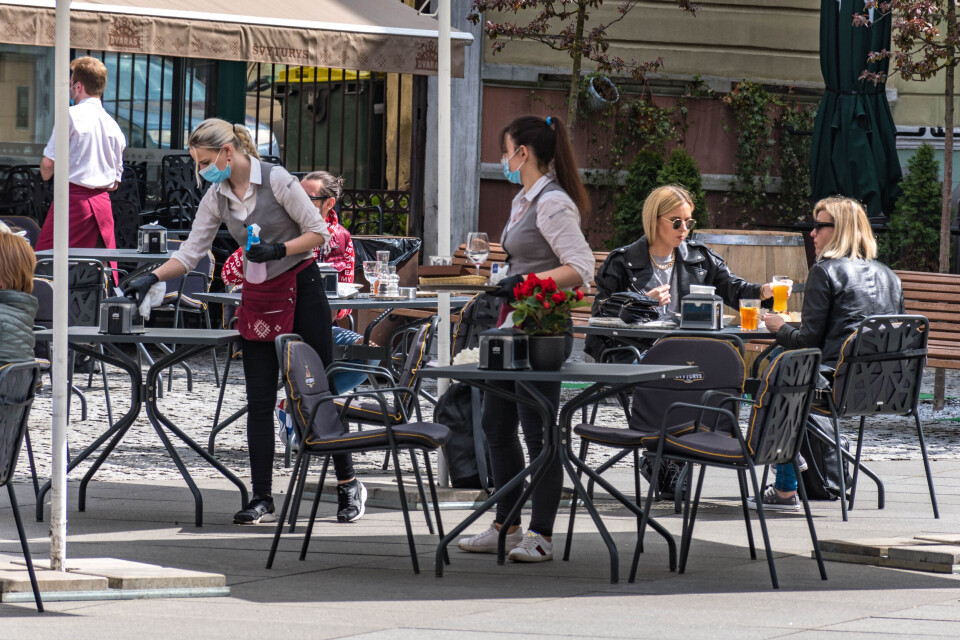-
Strikes and protests in January 2026 and how you may be affected
Doctors, rail staff, and farmers are all taking action
-
Good news as lower electricity bills confirmed in France
The change is not a ‘revolution’ but will give some purchasing power back, minister says
-
French ski resorts report excellent Christmas despite less snow than last year
Bookings are up and non-snow related activities are also on the rise
New French study reveals places where Covid infections most likely
Researchers said the results show how important ventilation and barrier gestures still are in combatting the virus

A new study from Institut Pasteur has shown the places where people are most likely to be infected by Covid, with the riskiest places including bars and nightclubs.
For the study, which was published yesterday (November 25) in the journal The Lancet Regional Health Europe, researchers analysed the locations connected to more than 12,000 positive cases of the Delta variant, and 5,000 individuals between May 23 and August 13, 2021.
This was just after leisure and culture areas reopened. People taking part in the study also filled in questionnaires about where they had been exposed to the virus.
Bars and nightclubs riskiest places
The riskiest places were found to be bars and nightclubs. People aged 40 or under who had been to a bar had 90% more chance of later testing positive.
This chance went up as high as 350% if they were attending a private party. Gathering in bars to watch sports matches such as the football Euros also increased the risk.
Public transport spaces were also a risk, although not as much as bars.
Restaurants, shops, cinemas and hairdressers less risky
In contrast, visiting restaurants during this time did not appear to significantly increase people’s risk.
Epidemiologist Professor Arnaud Fontanet, lead researcher on the study, said: “That’s probably because it was midsummer and we could open windows and have people on the terrace.”
The study also found that many other places that were closed during the pandemic were also less likely to be sites of infection; such as cinemas, theatres, shops, and hairdressers.
Professor Mahmoud Zureik, professor of epidemiology and public health at Versailles Saint-Quentin-en-Yvelines University, said that this is likely because “we don’t necessarily stay in those places for a long time, or we respect barrier gestures [such as physical distancing and wearing masks].”
Children increase risk of infections
Having children living at home was also shown to increase the risk of people becoming infected.
Parents aged 40 or above with children of collège age (11-15) had a 30% higher risk of being infected, and this risk shot up to more than 90% for children aged under three.
Children under 12 in France have still not been offered vaccinations, meaning that this younger age group can still become infected and spread the virus more easily. Ministers have so far said that they will not make a decision on whether to vaccinate under-12s until early 2022.
Read more: Covid boosters for all, jabs for children: When will France decide?
Professor Fontanet said: “This shows how important it is to keep all measures in place in schools, such as providing ventilation and wearing masks.”
The professor said that scientists had not been clear enough on the importance of good ventilation in combatting the virus. He said: “Even an open door onto a corridor in a classroom, for example, is something; even if it’s better to open a window.”
It comes after the government announced new measures to fight the fifth wave of the virus, including opening booster jabs to everyone aged 18 and over, and making masks mandatory in public spaces, including where the health pass is required for entry (such as restaurants and cinemas).
Professor Fontanet said that he recommends that people wear FFP2 masks rather than fabric or surgical ones in places that represent an especially high risk. He said: “For me, when you’re in very high-risk situations, putting on an FFP2 makes sense.”
Related articles
Masks, tests, boosters: new Covid rules to fight fifth wave in France
Covid booster for all adults in France: Majority in favour of new rule
























